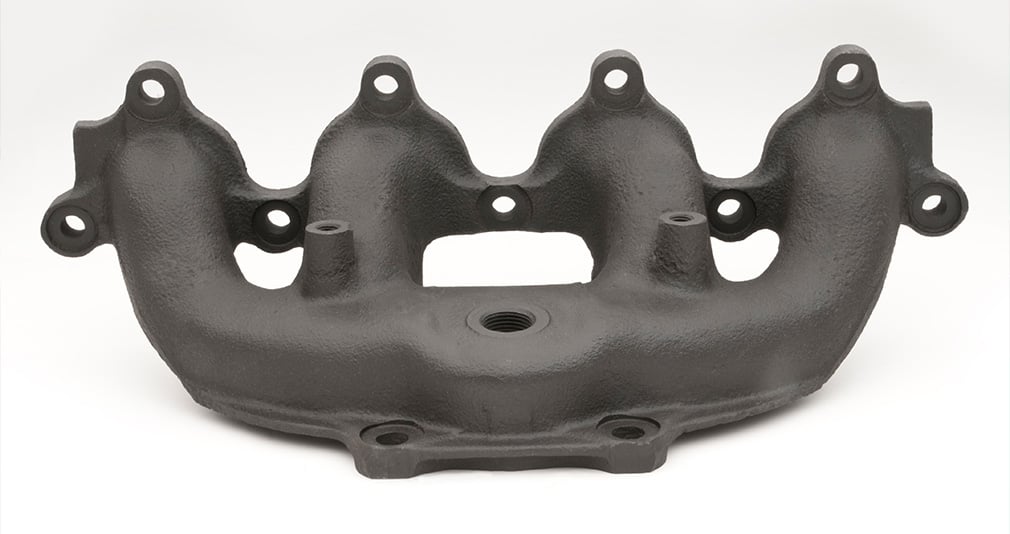Exhaust manifold leak symptoms may include loud noise and decreased engine performance. If left untreated, it can lead to engine damage.
Recognizing these signs early can prevent costly repairs and ensure optimal vehicle performance. A leaking exhaust manifold can affect the engine’s efficiency, leading to decreased fuel economy and power output. Additionally, the exhaust fumes escaping from the leak can be harmful to both the environment and occupants inside the vehicle. So, It is very important to know exhaust manifold leak symptoms.
Contents
Recognizing Exhaust Manifold Leak Symptoms
Exhaust manifold leak symptoms can be easily recognized by the presence of loud ticking or hissing sounds, decreased engine performance, and the smell of exhaust fumes inside the vehicle. These signs indicate the need for immediate inspection and repair to prevent further damage.

Unusual Engine Noises
An exhaust manifold leak can result in unusual engine noises that are easily recognizable. Listen for a distinct ticking or tapping sound that intensifies during acceleration. This noise is often a clear indicator of a leak in the exhaust manifold. Additionally, a hissing or popping noise may also be present, especially when the engine is under load.
Decreased Fuel Efficiency and Performance
Decreased fuel efficiency and performance are common symptoms of an exhaust manifold leak. As the leak allows for the escape of exhaust gases before they pass through the catalytic converter, the engine’s performance and fuel efficiency are compromised. Look for a noticeable reduction in miles per gallon and overall power output, as well as sluggish acceleration.
It’s important to promptly address any symptoms of an exhaust manifold leak to prevent further damage to the engine and to maintain optimal fuel efficiency and performance. Regular inspection and maintenance can help identify and resolve such issues before they escalate.
Visual And Olfactory Indicators
When it comes to diagnosing an exhaust manifold leak, paying attention to visual and olfactory indicators can provide valuable clues. These indicators can help identify the presence of a leak and prompt timely repairs, preventing further damage to your vehicle.
Visible Signs Of A Leak
One of the most obvious visual indicators of an exhaust manifold leak is the presence of black soot around the manifold area. This black residue is a result of the exhaust gases escaping from the cracked or damaged manifold. Additionally, you might notice small cracks or holes in the manifold itself, visible upon close inspection.
Another visual clue of a possible leak is a discolored or burnt appearance on the surrounding components. The intense heat generated by the escaping gases can cause discoloration on nearby parts, such as the manifold gasket or nearby engine components.
Inspecting the manifold and its surroundings visually can help you identify these signs and take appropriate action to rectify the issue.
The Smell Of Exhaust Inside The Cabin
If you start noticing a strong smell of exhaust inside the cabin, it could indicate an exhaust manifold leak. The noxious fumes from the leaking gases can find their way into the vehicle’s interior through various openings, such as vents, windows, or even small gaps in the bodywork.
This unpleasant odor is not only a sign of a potential leak but also poses a health risk to the occupants. Inhaling exhaust fumes can lead to symptoms like headaches, dizziness, and nausea. Therefore, it is crucial to address any exhaust leaks promptly to ensure the safety and well-being of everyone inside the vehicle.
Should you notice the smell of exhaust inside the cabin, it is advisable to have your exhaust system inspected by a qualified mechanic to identify and repair any leaks.
Consequences Of Ignoring Leak Symptoms
Ignoring exhaust manifold leak symptoms can lead to severe consequences that affect both your vehicle’s performance and safety.
Potential Damage To The Engine
1. Continuous exposure to exhaust gases may cause damage to the engine components.
2. Over time, the leak can result in decreased engine efficiency and power.
3. Excessive heat from the leak can warp or crack the engine parts.
Safety Risks And Environmental Impact
1. Inhaling exhaust fumes can lead to health issues for passengers and drivers.
2. Carbon monoxide emissions due to leaks contribute to air pollution.
3. A leaking exhaust can pose a fire hazard, especially near flammable materials.

Credit: shop.advanceautoparts.com
Frequently Asked Questions
Here are some FAQs about exhaust manifold leak –
How Do I Know If My Exhaust Manifold Is Leaking?
To know if your exhaust manifold is leaking, you may hear a hissing sound, smell exhaust fumes, or notice reduced engine performance. You can also visually inspect the manifold for cracks or signs of corrosion. It’s important to fix any leaks as they can lead to decreased fuel efficiency and potential engine damage.
What Happens If You Drive With An Exhaust Manifold Leak?
Driving with an exhaust manifold leak can lead to several issues like reduced fuel efficiency, engine misfires, and increased emissions. It can also cause damage to the engine components, leading to costly repairs. It’s best to get the issue fixed as soon as possible to prevent further damage to the vehicle.
What Does Manifold Leak Sound Like?
A manifold leak can sound like a hissing or ticking noise, especially when the engine is running. It may also cause a decrease in engine power and acceleration. If you suspect a manifold leak, it’s important to have it inspected and repaired by a professional mechanic.
What Are The Three Most Common Symptoms Of A Cracked Exhaust Manifold?
The three most common symptoms of a cracked exhaust manifold are loud exhaust noise, decreased engine performance, and a noticeable smell of exhaust fumes inside the vehicle.
What Are The Common Symptoms Of An Exhaust Manifold Leak?
Exhaust smell, loud noise, decreased power, high fuel consumption, and engine misfires may occur.
Conclusion
Being aware of exhaust manifold leak symptoms is crucial for maintaining your vehicle’s performance. Promptly addressing these issues can prevent further damage and costly repairs. Regular inspection and maintenance can help identify any potential leaks early on, ensuring the longevity of your car’s exhaust system.
